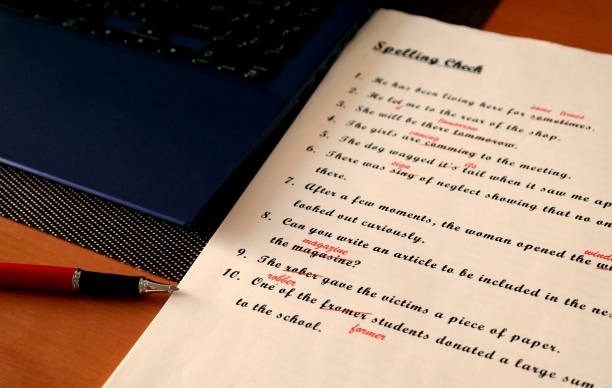In the world of academic and scientific research, precision is everything. The value of a well-conducted study or a novel discovery can be overshadowed by unclear, error-ridden writing. Researchers face a dual challenge — not only must they communicate complex ideas clearly, but they must also meet rigorous linguistic and formatting standards set by journals and institutions. This is where Trinka, a cutting-edge grammar checker, proves to be indispensable. Designed specifically for researchers, Trinka has rapidly become a favorite among academic editors and scholars alike.
Why Trinka Stands Out in Academic Writing
There are dozens of grammar checkers available online, but few understand the unique demands of academic and technical writing. Trinka is designed specifically for academic communication, in contrast to conventional writing instruments. It goes far beyond simple punctuation or spelling checks, offering deep insights into grammar, tone, clarity, and subject-specific language.
Here’s what makes Trinka a top choice for researchers and editors:
- Domain-Specific Language Support: Trinka’s AI is trained on millions of academic and technical documents across various fields, including medicine, engineering, social sciences, and more. It recognizes and respects scientific terminology, ensuring that your jargon-rich content is not mistakenly flagged as incorrect.
- Academic Style Enhancements: Trinka refines formal tone, improves sentence flow, and recommends changes to achieve consistency in academic style. It even helps with paraphrasing and passive-to-active voice conversions — common pain points for many researchers.
- Journal Readiness Checks: Beyond grammar, Trinka evaluates your manuscript against global journal standards. Its publication readiness feature identifies issues that could lead to rejection, helping researchers submit confidently to top-tier journals.
- Real-Time Editing Across Platforms: Whether you’re using the Trinka cloud editor or the Microsoft Word add-in, you can receive intelligent writing suggestions in real-time. This flexibility is especially helpful for researchers who draft their papers directly in Word but need advanced editing support.
A Trusted Tool Among Editors
Trinka is not only popular among authors — it’s increasingly being used by professional editors who work with academic publishers, editing services, and university presses. Why? Because it makes the editing process more efficient and accurate.
For editors, Trinka acts as a first layer of review, catching language and structural issues that might otherwise go unnoticed. It saves time by automating common corrections while preserving the writer’s intended meaning. Editors appreciate Trinka’s ability to provide detailed feedback without flattening the academic tone or misinterpreting technical language — a common problem with mainstream grammar tools.
Many editing professionals find that Trinka’s consistency checks, especially for abbreviations, spellings, and style choices, reduce the need for manual cross-checking. This increases the final document’s overall quality and readability in addition to streamlining their procedure.
Tailored for Global Researchers
In today’s interconnected academic world, many non-native English-speaking researchers struggle with writing fluently in English — the dominant language of publication. Trinka serves as a language bridge, helping authors communicate their research clearly and effectively while maintaining academic rigor.
It doesn’t just flag errors; it provides contextual explanations, turning every correction into a mini lesson. Over time, this empowers researchers to develop better writing habits, boosting their confidence and chances of acceptance in international journals.
The Ethical Side of Writing: Enago’s Plagiarism Checker
While Trinka ensures grammatical accuracy and stylistic polish, maintaining academic integrity is equally critical. Unintentional plagiarism can derail even the most meticulously researched manuscript. To safeguard against this, many researchers turn to Enago’s plagiarism checker.
Enago, a globally recognized name in author services, offers a plagiarism checker designed specifically for academic writing. It compares submitted manuscripts against a vast database of scholarly publications and internet sources, identifying similarities and citation issues that could otherwise go unnoticed.
Using Trinka for grammar checking and Enago for plagiarism detection creates a powerful one-two punch for producing high-quality, ethical research. Together, they support the entire writing and submission process — from drafting and editing to final review.
Who Benefits from Trinka?
While Trinka is clearly optimized for researchers and editors, its usefulness extends beyond academia. Here’s who can benefit most from this intelligent grammar checker:
- PhD Students & Postdocs preparing theses, dissertations, or journal articles
- University Faculty writing grant proposals or submitting research for publication
- Editors & Proofreaders working with scientific and scholarly content
- Medical & Technical Writers producing specialized documentation
- Non-native English Speakers aiming to write with greater fluency and confidence
No matter your field, if accuracy, clarity, and professionalism are priorities in your writing, Trinka is the right tool.
Conclusion: Trinka as a Researcher’s Best Ally
When it comes to academic and professional writing, generic grammar checkers simply don’t cut it. Researchers need a tool that understands the nuances of scholarly language, respects domain-specific terminology, and provides meaningful, intelligent suggestions. Trinka Grammar Checker checks all those boxes — and more.
Loved by editors, trusted by researchers, and designed with precision in mind, Trinka is more than just a grammar tool — it’s a comprehensive writing assistant tailored for the demands of academia. And when used in combination with Enago’s plagiarism checker, it ensures that your work is not only accurate and polished but also original and publication-ready.
